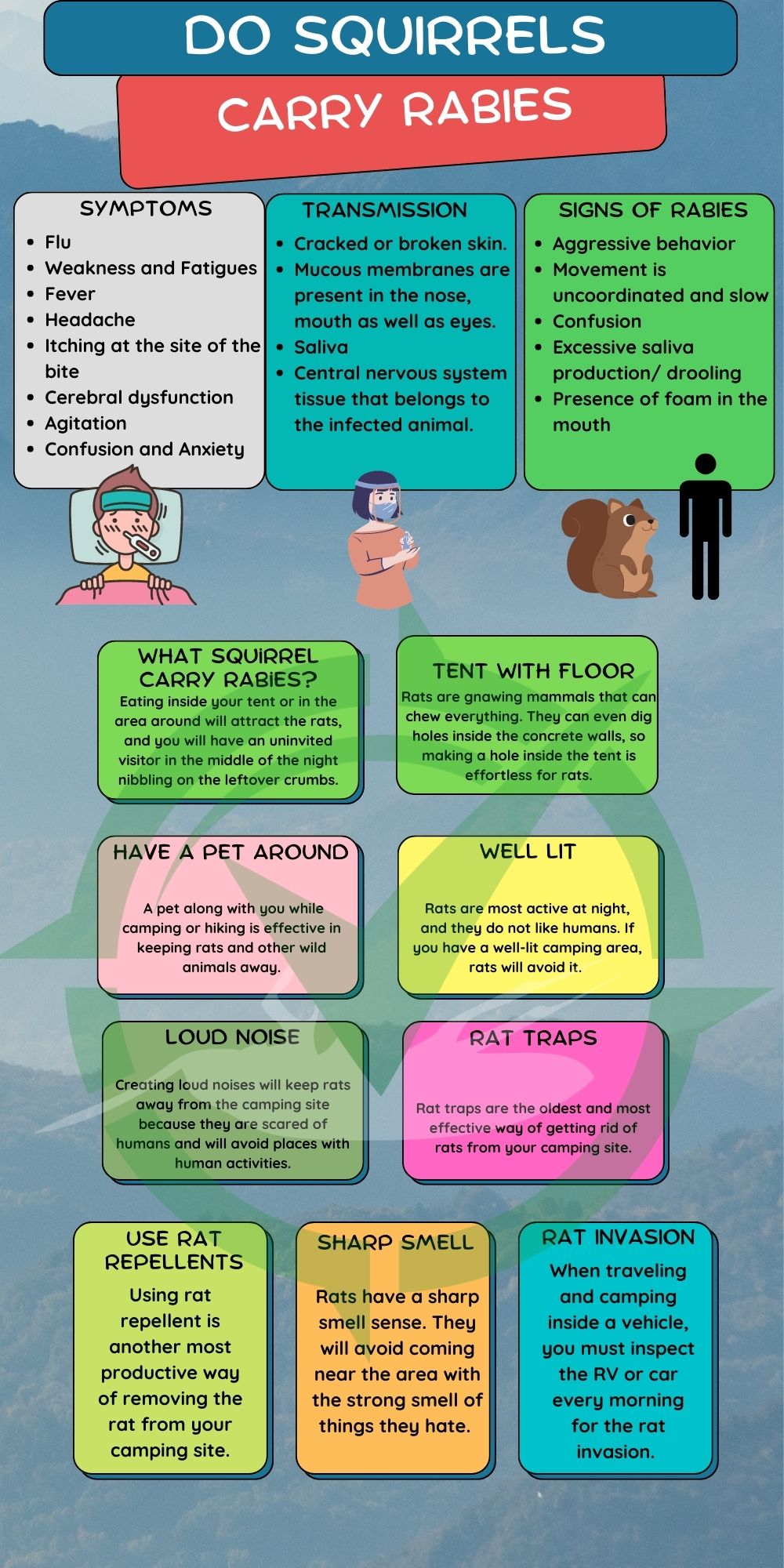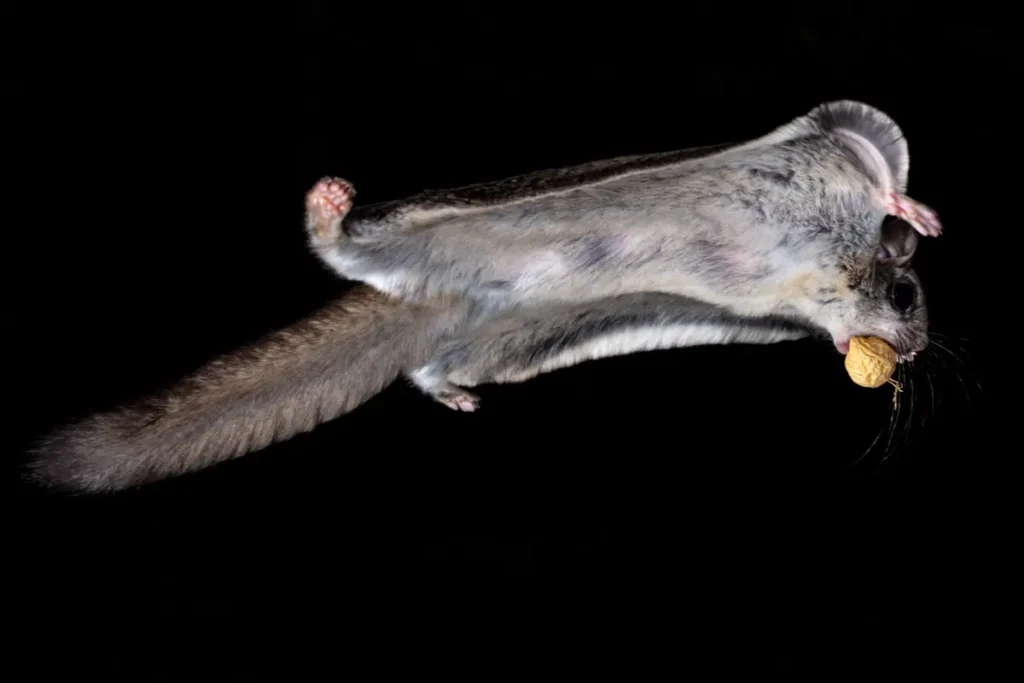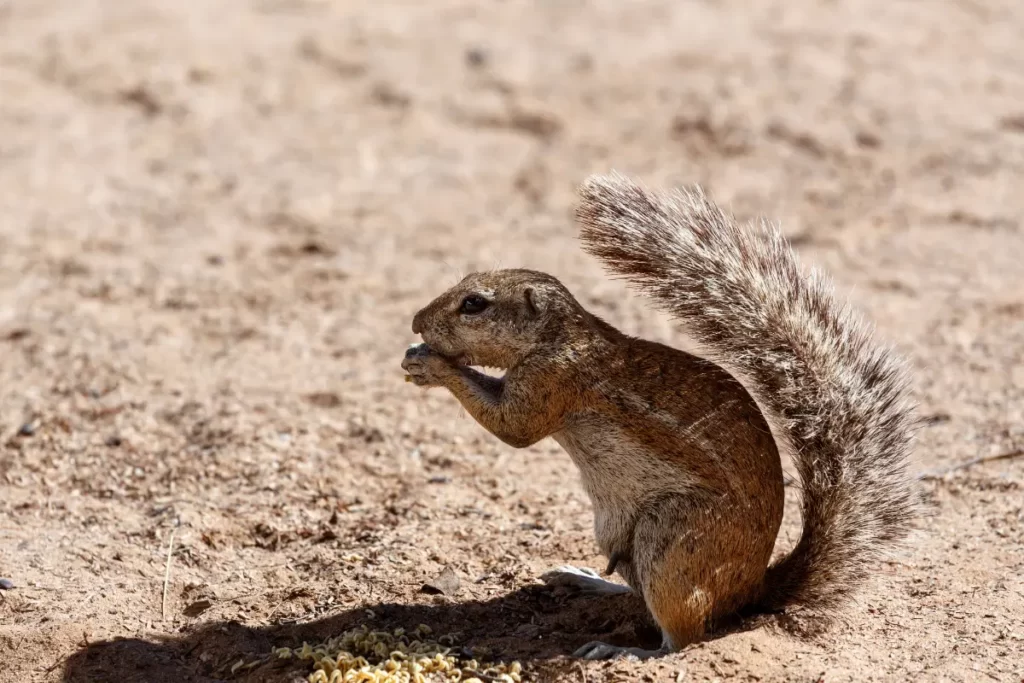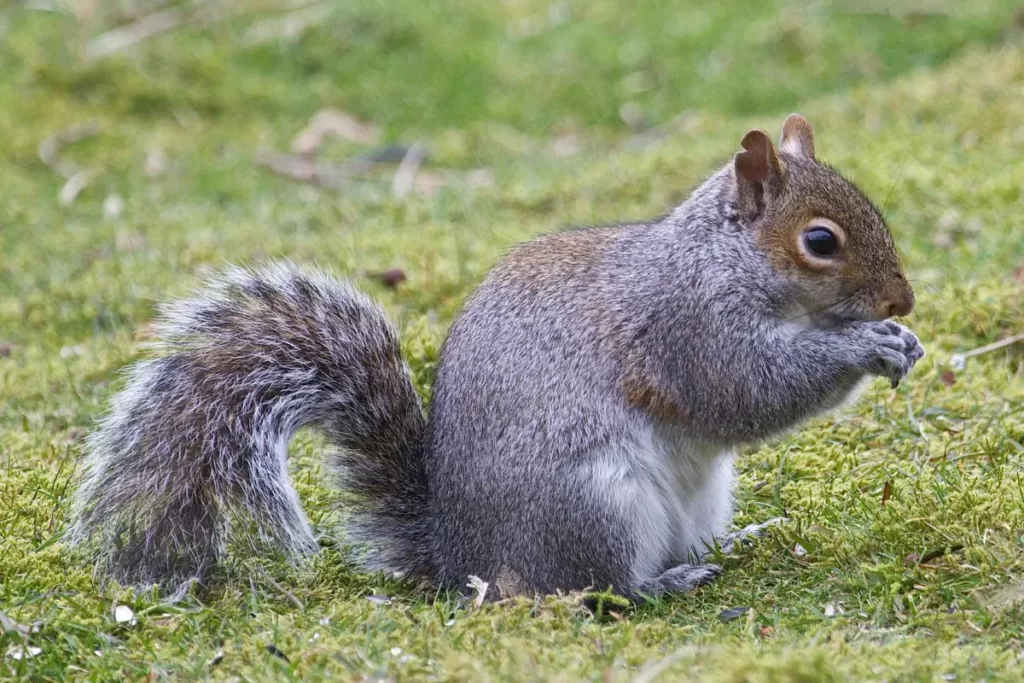Though squirrels are rodents, it is a common notion that one should keep away from squirrels as far as possible. Rodents carry a lot of diseases in their bodies that can be transmitted upon contact, but if we talk specifically about squirrels, do squirrels carry rabies?
No, squirrels do not carry rabies. Neither do other known rodents like hamsters, mice, rats, chipmunks, guinea pigs, gerbils, and lagomorphs such as hares and rabbits. Their chances of getting infected with rabies are scarce but not impossible.
By reading this article, you will know more about rabies disease and what kind of squirrels carry it. You will gain insight into squirrel bites and, if you get one, what your code of conduct should be.

What Is Rabies?
Rabies is a viral disease. It can infect animals as well as humans. Since this is a zoonotic virus, it is transmitted from the bite of an animal to a human being. It is most commonly found in rabid dogs.
The virus targets the host’s central nervous system and leads to brain death. It is not long before the host cannot deal with the complications and succumbs to the virus.
Signs Of Rabies In Squirrels
Just like humans, squirrels also show signs of rabies once the virus starts replicating inside its body. For squirrels and other animals, the symptoms are as follows:
- Aggressive behavior
- Movement is uncoordinated and slow
- Confusion
- Excessive saliva production/ drooling
- Presence of foam in the mouth
Usually, the squirrels are in a constant state of confusion and unable to make out their surroundings well. That is why if they get provoked slightly, they may end up biting the animal or person close by.
This way a chain of transmission is started. The virus can only replicate inside a living host, this means that transmission is successful only when an animal bites before dying.
Rabies Symptoms In Humans

Here is a list of symptoms that appear in a person infected with rabies:
- Flu
- Weakness and Fatigues
- Fever
- Headache
- Itching at the site of the bite
- Cerebral dysfunction
- Agitation
- Confusion and Anxiety
For many years, many cases of rabies have been reported to the CDC (Centers for disease control and prevention). Many animals like raccoons, bats, foxes, and skunks can suffer from rabies.
Do Flying Squirrels Carry Rabies?

To this date, there have been no reports of flying squirrels carrying the rabies virus inside their bodies. Neither have they been the host nor transmitted it to other animals or humans.
However, the flying squirrel is susceptible to typhus. It is a bacterial disease. Although, it is rarely passed on to humans via squirrels. One should not be worried about rabies transmission through squirrels, for there are other parasites to be concerned about.
A squirrel’s body has small mites, fleas, lice, and other mutualistic parasites. One must beware of squirrels and their bushy tails. Contact should be prevented to avoid catching a parasite.
Do Ground Squirrels Carry Rabies?

A ground squirrel will rarely carry rabies in its body. This can only happen when the squirrel has come in contact with a rabid animal. Once the squirrel has contracted the virus, it does not have long to live.
You rarely see a squirrel with rabies, but you can know if it is positive by checking for signs like foaming in the mouth. This way, you can keep yourself safe and secure from squirrels with rabies.
Ground squirrels can usually be seen during the day. So, even if you are out, you should keep an eye open for squirrels who are acting out of the ordinary.
Do Grey Squirrels Carry Rabies?

Yes, gray squirrels can carry rabies, but this is not a common disease to be found in squirrels. However, you should be concerned if a squirrel bites you and you have observed the squirrel depicting signs of falling over, lethargy, paralysis, fearlessness, and strange behavior like walking in circles.
You must go to the nearest medical facility and get a few shots of rabies injection. The virus can then be stopped timely, and your life can be saved. Otherwise, you will end up dying.
The prime time for getting these shots is during the incubation period, as at that time, the symptoms have not yet started to appear.
Do Red Squirrels Carry Rabies?

Generally, the rabies virus does not infect squirrels. The tree squirrels are also referred to as the red squirrels. They have the unique ability to climb very high to the tree tops. This is due to their agility.
Even if rabid animals come nearby, the red squirrels become aware of them and climb to the treetops to escape them. That is the main reason behind their low chances of acquiring the rabies virus from different rabid animals out in the forest.
Moreover, it is unlikely that squirrels will be able to survive the severe attack by their predators. Instead of dying out from rabies, squirrels are more likely to die from the wounds inflicted by predators.
Do Baby Squirrels Carry Rabies?

No, the baby squirrels do not carry rabies. They cannot be a host for rabies. Usually, it is the adult squirrels that the rabid animals target. It is mainly due to the reason that small squirrels are energetic.
They can escape the dangerous disoriented rabies-stricken animals more fastly as compared to the baby squirrels. Moreover, the adult squirrel or mother squirrel provides extra protection to its little ones and will wag its tail viciously if it senses danger for the baby squirrel.
As the baby squirrels are adept at dodging predators, it is less likely for them to contract the life-threatening virus- Rabies.
How Rabies Is Transmitted?
Like every other virus, rabies virus also has a particular route of infection. It needs to bind to certain receptors in our bodies before it can start replicating inside the host. Mostly, the virus is transmitted via direct contact. This can be done through:
- Cracked or broken skin.
- Mucous membranes are present in the nose, mouth as well as eyes.
- Saliva
- Central nervous system tissue that belongs to the infected animal.
The most common way of transmission is when a rabid animal bites the person. The saliva of the infected animal covers the teeth.
That is why when those teeth penetrate the skin of a non-infected person, a person can get rabies. Rabies can be transmitted through;
- Infection Pathway
- The rabid animal bites another animal or a human being
- From the infected saliva, the virus gains entry into the wound
- It travels from the muscle to the brain
- It reaches the nerves and the spinal cord
This period is called the incubation period and during this, the person does not manifest any symptoms of the disease
Once inside the central nervous system, the virus replicates and copies itself
The infected person or animal dies within seven days of the onset of symptoms.
Can Squirrels Transmit Rabies To Humans?

No, it is improbable that a squirrel will bite humans and transmit rabies to them. No such cases have ever been reported. However, if you come across a rabid squirrel, it will likely try to take a leap toward you and bite you before it dies.
Similarly, researchers carrying out their study on rabid squirrels by inducing the rabies virus in their bodies are at risk of developing rabies through squirrel bites. That is why one must steer clear of rabid squirrels.
Another precaution must be taken. No children should be allowed near squirrels. One should not come in contact with them.
Do Squirrels Carry Rabies To Dogs?

No, squirrels do not transmit rabies to dogs. Instead, it is the contrary. The chances of a dog acquiring rabies from a squirrel are zero. Though squirrels are incapable of transmitting rabies to dogs, there are plenty of other parasitic diseases that they can cause dogs.
For instance, during an encounter with a dog, if the squirrel bites it, there is a chance that the dog will develop an infection. These infections include coccidiosis and roundworms.
The roundworms reside in squirrels’ fur, and a dog can easily acquire the larvae during an encounter. The squirrel or mother squirrel provides extra protection to its littler ones and will wag its tail viciously if it senses danger for the baby squirrel.
How Long Can A Squirrel Live With Rabies?
A squirrel can live up to more than five years after acquiring the rabies virus. However, it all depends on which stage of the life cycle a virus is in.
As mentioned above, the virus goes to the CNS to replicate. That means if it goes to the muscles, it will not replicate there, but when it goes to the nerves, it will start producing progeny.
However, once the symptoms start, no animal can live again normally. At first, it makes the host lethargic, but the squirrels start getting mad. Squirrels also develop a condition called hydrophobia. This means that they are afraid of water.
All the drooling causes them to become dehydrated. Moreover, they are no longer able to swallow. As a result, the squirrels start starving to death.
How Often Do Squirrels Have Rabies?
It is not likely that the squirrel will get rabies. This is because squirrels seldom survive attacks by rabid animals such as dogs. The dogs are so large and mighty compared to a squirrel that the poor little creatures cannot heal from the wounds inflicted by them.
Not every squirrel is going to get rabies in their lifetime. It all depends on their exposure to the wilderness or the domestic areas. Sometimes, they can come across rapid dogs even in residential areas.
So, even if a squirrel gets rabies in its lifetime, it will only be once, and it will not be able to recover from it. As a result, they will die.
Can Humans Catch Other Diseases From Squirrels?
Squirrels can carry a lot of diseases in their bodies. However, only a few of them cause danger to humans. Squirrels cannot transmit rabies to humans, but they do transmit diseases like ringworms, lice, plague, typhus, and tularemia.
These diseases can only be acquired through direct contact with squirrels. A squirrel is too timid to come near humans. So if you try grabbing it with your hands and come in close contact with it, there is a possibility that you can contact any of the above-stated conditions.
The chances are quite slim but it is best that if you are dealing with squirrels, you should take out some time to wear gloves first.
Should I Be Worried If A Squirrel Bites Me?
Do not fret over a squirrel’s bite. It does this out of self-defense. An animal will always stay on alert if it feels threatened. This helps them to survive in the wild.
What about the squirrels that have been tamed? Even they will bite you at some point. You do not need to worry. There is a meager chance of you getting rabies from a squirrel. Moreover, if you acquire ringworm, you can always apply an Anti-fungal ointment to treat it.
If you start bleeding out due to a squirrel bite, you must act immediately and put a bandage around it. Wrapping your wound timely will help you prevent unnecessary blood loss.
Should You Get A Rabies Shot After A Squirrel Bite?
No, there is no hard and fast rule for getting a rabies shot after a squirrel bite. However, if you recognize the symptoms of rabies in a squirrel, you must hurry to a nearby hospital.
Usually, a squirrel with rabies has very aggressive behavior, so when it bites you, it will bite with all its might. The second cue you should be paying attention to is the foaming in the mouth. If both of these signs are there, you must hurry.
You must inform the doctor about the state of the squirrel. The doctor will begin a series of rabies shots so your life can be saved quickly. It is better to be safe than sorry.
Do You Need Antibiotics For A Squirrel Bite?

There is no need for routine prophylactic antibiotics. However, it becomes necessary if the wound is deep and the bleeding cannot be stopped. In such a case, you need to clean the wound and then press the wound tightly for the healing process to begin. You need to get a few stitches if the flesh has been torn.
Sometimes, you can acquire bacterial infections. If your symptoms include fever, then you should start on a course of antibiotics but only the ones that a doctor has prescribed. Do not set out to be your own doctor and eat any painkiller. Consult a doctor before taking a painkiller too.
Wrapping It Up
It is unlikely for a squirrel to have rabies. Nevertheless, you must maintain your distance from stray and rabid squirrels. It is preferable to keep yourself protected and away from the wilderness.
Still, if you observe anything disturbing after a squirrel bite, you should seek a doctor’s advice and have your wounds looked at. If a doctor believes you are at a risk for acquiring rabies, you should get started on the rabies dose shots.
It must be kept in mind that these shots cannot be given in one go. You must visit the doctor each week for a follow-up as well as for the boosters.
References
Bharti, Omesh & Jayasuriya, Inuk & Jayasuriya, Vasantha. (2020). RABIES IN SQUIRREL AND OTHER WILD ANIMALS. XXII. June 2020.


